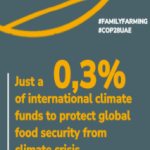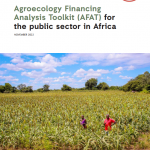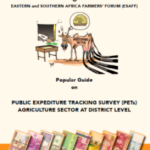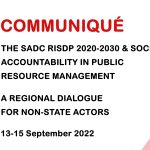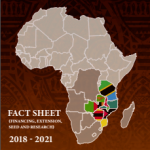ESAFF’s drive to empower the small scale woman farmer
31-5-2011
In the small scale farmer societies, when we come to leadership, women mostly take the back seat despite being main actors in the production chain.
Actually, women lag behind in leadership positions and roles at all levels from the family, national to regional level. It is said they are not even aware of their right to land ownership at times.
This is why, Eastern and Southern Africa small scale Farmers’ Forum (ESAFF) has decided to make gender issues a priority area in implementation of activities.
ESAFF secretariat says, it will be providing knowledge on gender and gender justice concepts as well as providing practical tools to small scale farmers, expecting to have more women in leadership positions.
Gender based violence is a sordid reality of life among some farmer communities that needs to be fought from all sides.
ESAFF realizes that addressing gender based violence is a critical issue to women’s development, especially in the context of HIV/Aids.
Talking about this social crime and seeking solutions is important. That is why Eastern and Southern Africa small scale Farmers’ Forum (ESAFF) in conjunction with Tanzania Gender Networking Program (TGNP) facilitators Gemma Akilimali and Beatrice Hezekiel organised a two day workshop on Gender, HIV/AIDS and Youth sensitization.
In discussing the gender concept in relation to agriculture and other development issues, the question of gender based violence came out prominently.
Other issues discussed were gender and HIV/AIDS in Southern Africa, Advocacy for gender and development and gender budgeting.
From the facilitators desk; the workshop provided skills and knowledge for application in day to day work. There was sharing of experience and networking in gender, HIV/Aids and youth sensitization.
One of the participant from Rwanda Rachel Muyoboke said: “The workshop is of great advantage not only to ESAFF at the regional level but also at the national levels.”
She was of the opinion that all the national chapters should think of mainstreaming gender in all their actions.
Mubanga Kasakula, a farmer leader from Zambia said that change in mindset should start with leaders at personal level. “We can start by helping our wives at home, and in this way we can be able to mainstream gender not only at our family level but also at our chapters,” he said.
Accordingly, by empowering women in leadership positions and roles as small scale farmers, it would go a long way in ensuring forward development.
As a result of ESAFF’s effort, farmers were equipped with gender knowledge, farmers have come up with a gender guideline which will be implemented at all level. The guidelines requires women to be engaged in leadership position not only at the national level but also at the regional level.
In its work, ESAFF will continue mainstreaming gender in all its action, to ensure that government policies and programs reach and benefit the vast majority farmers who are women and youth.
ESAFF secretariat says Gender, Youth and HIV are key issues in agriculture and institutional development.
.jpg)

















